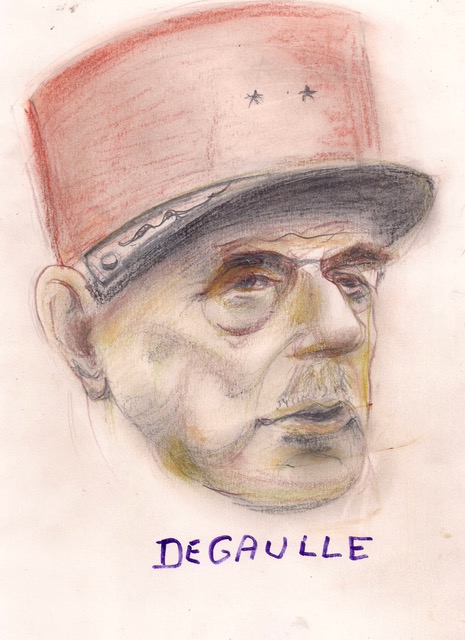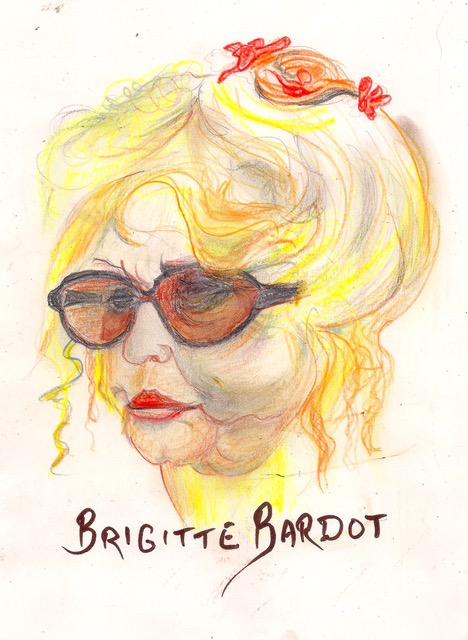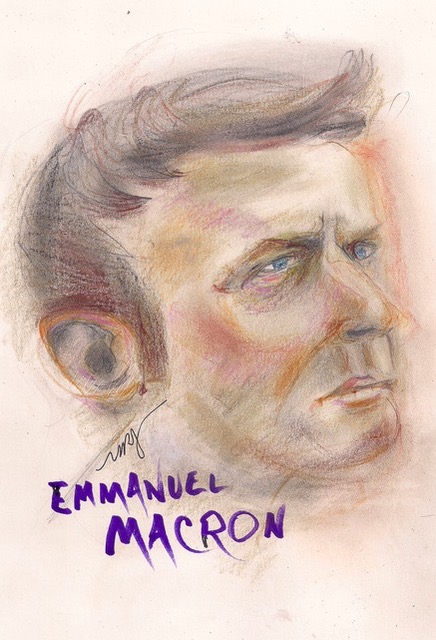Drawing conclusions: In search of the French face
How much can you tell about your neighbor by analyzing his or her face ? Is he or she an esthete with refined tastes? A rock musician with a stud in his tongue? A workaholic? A closet Walter Mitty? In our search for these hidden meanings, the pseudoscience of physiognomy still attracts us, like horoscopes and palm readings.
In my practice as a portrait artist, I look for facial clues and try to classify them. The variety is infinite and almost no one agrees where to stop implying personalities. To what extent are attitudes and behavior predictable to the Italian type? The Slav? The Frenchman? A Spaniard, a Finn?
One writer recalls that in the Middle Ages, attributing behavior to facial traits was the business of “vagabonds and mountebanks”. No longer. Today there is a renaissance in the field, centering on the controversial practice of racial profiling. This desire to look inside us refuses to quit.
The effort to catalogue the human face has fascinated philosophers, academics and artists since the days of Da Vinci, Diderot and Darwin. But it is the French face today that offers the most convenient case study of types. This has struck me as I have focused my artwork on the French and realized I am painting hooded eyelids, pointed noses, narrow eyes and narrow lips over and over. Look at Simone de Beauvoir. François Mauriac? Emmanuel Macron?
To any rule, there are exceptions, and in this context they are multifarious. France was never one country, one race. And now, more than ever, foreign ethnic influences have swarmed across the borders and bred hybrid offspring. Is there still a “French type”? The population is so mixed to have become almost a United Nation of racial traits.
Yet the French face does provide commonalities that separate them from other Latin types such as the Italians and Spanish. I am at work on a new collection of portraits I am calling “50 French Faces”. I have catalogued them as the needle-nosed, the fine mind, the cool cat, and the walking caricature.
Hollywood for years called on Charles Boyer to typify one French look – bedroom eyes, sly maneuverings, the dismissive look. A face of another type, the massive mug and narrow eyes of Charles de Gaulle, provides the same disdain of the foreigner but also a superiority based on his belief in his own destiny. His height (6 feet 5 inches, 196 centimeters) helped. Even I, at 6 feet (183 cm) stand out in a French crowd. The fine traits of Valery Giscard d’Estaing reveal an intellectual esthete. I once interviewed him and discovered during a discourse on French writers that his English was better than mine.
My illustrations for this brief overview attempt to capture some of the less obvious French types.
Charles de Gaulle – Narrow-eyed, xenophobic.
François Mauriac – Celestial, other-worldly.
Brigitte Bardot at 85 – Mortal, resigned.
Valéry Giscard d’Estaing – Intellectual, piercing eyes.
Simone de Beauvoir -- Self-centered, superior.
Emmanuel Macron – Fine-nosed, all-knowing.






This article is brought to you by the author who owns the copyright to the text.
Should you want to support the author’s creative work you can use the PayPal “Donate” button below.
Your donation is a transaction between you and the author. The proceeds go directly to the author’s PayPal account in full less PayPal’s commission.
Facts & Arts neither receives information about you, nor of your donation, nor does Facts & Arts receive a commission.
Facts & Arts does not pay the author, nor takes paid by the author, for the posting of the author's material on Facts & Arts. Facts & Arts finances its operations by selling advertising space.


















